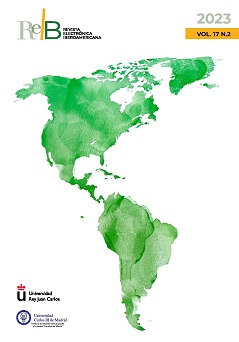La cultura en las relaciones internacionales contemporáneas. La diplomacia cultural, el modelo español y el espacio iberoamericano
Resumen
Este artículo desarrolla el tema del posicionamiento de la cultura en el marco de las relaciones internacionales a través de la diplomacia cultural; la cual constituye una nueva herramienta en las relaciones bilaterales y multilaterales. La instrumentalización de la cultura para representar una identidad nacional varía según el orden de prioridades de la política exterior de un sistema político; o según las competencias atribuidas a determinados organismos estatales encargados de la misión cultural. Los Estados se dotan de medios y estrategias de acción para desarrollar su política exterior en conjunto; incluyendo su diplomacia cultural; con el fin de darle una orientación específica. La filosofía de las intervenciones estatales en este ámbito; obedecen a varias lógicas; ya sea liberal; mixta o dirigista. La aparición del modelo español en los años noventa; con su enfoque; activos; características y dimensiones geo-culturales; constituye un prototipo innovador de diplomacia cultural; especialmente en términos de influencia; proyección y asociación; que se manifiesta a través de la labor del Instituto Cervantes y otros organismos. Sus vínculos históricos con el espacio iberoamericano prueban dicha relación estratégica y original que hace de España la pieza angular de la Iberofonía.
Descargas

Esta obra está bajo licencia internacional Creative Commons Reconocimiento-NoComercial-SinObrasDerivadas 4.0.
La Revista tiene una política de acceso abierto en línea una vez publicada. No implica coste alguno para los autores o usuarios. En todo caso, se respetarán los derechos de autor conforme a la legislación vigente.
La Reviste incluye en sus trabajos la licencia Creative Commons 4.0: Reconocimiento–No comercial–Sin obra derivada (CC BY-NC-ND 4.0).




